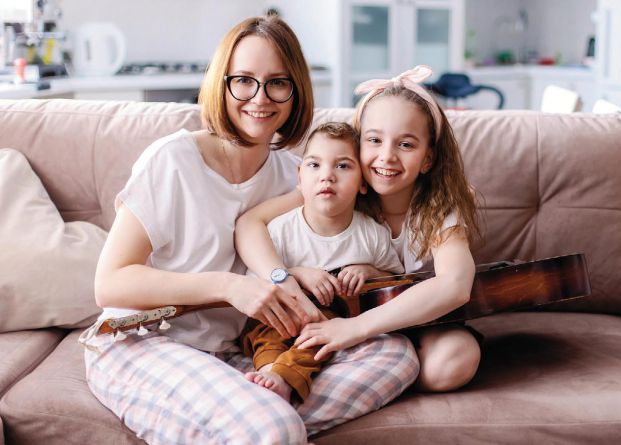Two unique visions
Each child is unique; therefore, the vision for his or her future is also going to be unique. If possible, it is important to involve each child in the planning. In keeping with the concept of PersonCentered Planning, development of the vision should include all those that may impact the life of the individual with special needs. This could include siblings, extended family members, professionals involved in planning, recreational connections, religious connections, and educators, just to name a few. Careful consideration should be given to each child's desires, wants, and needs for the future. What are the thoughts on post-secondary education, employment, housing, etc.? These factors will be critical to building a vision for the future. This process is not static; it may change over time. Plans should always be fluid.
Understanding capacity
Each child's capacity and capabilities may be different. It is important to understand each child's strengths, interests, and need for assistance. How do these factors relate to each child's vision for their future? Resources are available through early intervention programs. Once the child is eligible to attend school, there will be additional resources through Individualized Education Programs (IEPs). There may be other community-based programs and supports.
Legal and financial considerations
Legal plans should be distinct. Eligibility and availability for resource-tested government benefits are important to understand, as well as, how they apply to each child. There are many legal and financial instruments that should be considered as part of the planning. As an example, Special Needs Trusts and ABLE accounts may be valuable tools in preserving eligibility for means-tested government benefits. They also provide the integration of legal and financial planning. In most states, once a person turns 18, they become an adult. Depending on the individual’s capacity, guardianship or other considerations might be appropriate.
Creating a letter of intent
Creating a Letter of Intent document is also a good way to capture the needs, desires, and concerns for the individual currently and in the future. It also provides caregiving instructions to future caregivers, guardians, trustees, and advocates for both children. Each child should have their own Letter of Intent. The Letter of Intent will vary depending upon the unique situation for each child. Although not a legally binding document, the Letter of Intent will allow future caregivers to more quickly learn how to deliver the very best care.
Family meetings and communication
Having conversations and meetings regularly can help to identify needs, and assess plans and openness of existing and poten
tial successor caregivers. Keep in mind that dynamics may change over time, as caregivers age and siblings grow up. Therefore, it is important to continue an open conversation with all individuals involved. Make sure everyone is aware that there are plans in place, and that they know where to find the information on each individual (legal documents, Letter of Intent, etc.).
Successor caregiving
The ages of the individuals with disabilities will be a factor when considering successor caregivers. A multi-generational approach should be considered. Who you identify as successor caregivers is a very important consideration. Communication is
key. It is important to communicate plans and vision with the whole family, so that everyone is on the same page, and is informed as plans develop and change.

A CUSTOM FIT: Each child's capabilities may be different. It is important to understand each child's strengths, interests, and need for assistance.
Building resources
Building a resource network of professionals with expertise in special needs planning is essential. This includes attorneys, financial planners, tax professionals, non-profit disability organizations, and service providers. Connecting with other families can help, who offer information and insight, as well as encouragement. It can be difficult, but it is important to take time for yourself.
Creating a life-care plan will help provide a secure future for your children with special needs. Remember: the goal is to achieve and sustain the best quality of life for your loved ones with special needs and ensure they have the assistance they need in every aspect of their life. •
MassMutual SpecialCare
SpecialCare is a program created by MassMutual that provides access to information, specialists and financial solutions to people with disabilities and their families. For more information about Massachusetts Mutual Life Insurance Company (MassMutual) and its SpecialCare program, please visit massmutual.com/specialcare.
The information provided is not written or intended as specific tax or legal advice. MassMutual, its subsidiaries, employees, and representatives are not authorized to give tax or legal advice. Individuals are encouraged to seek advice from their own tax or legal counsel. Individuals involved in the estate planning process should work with an estate planning team, including their own personal legal or tax counsel.